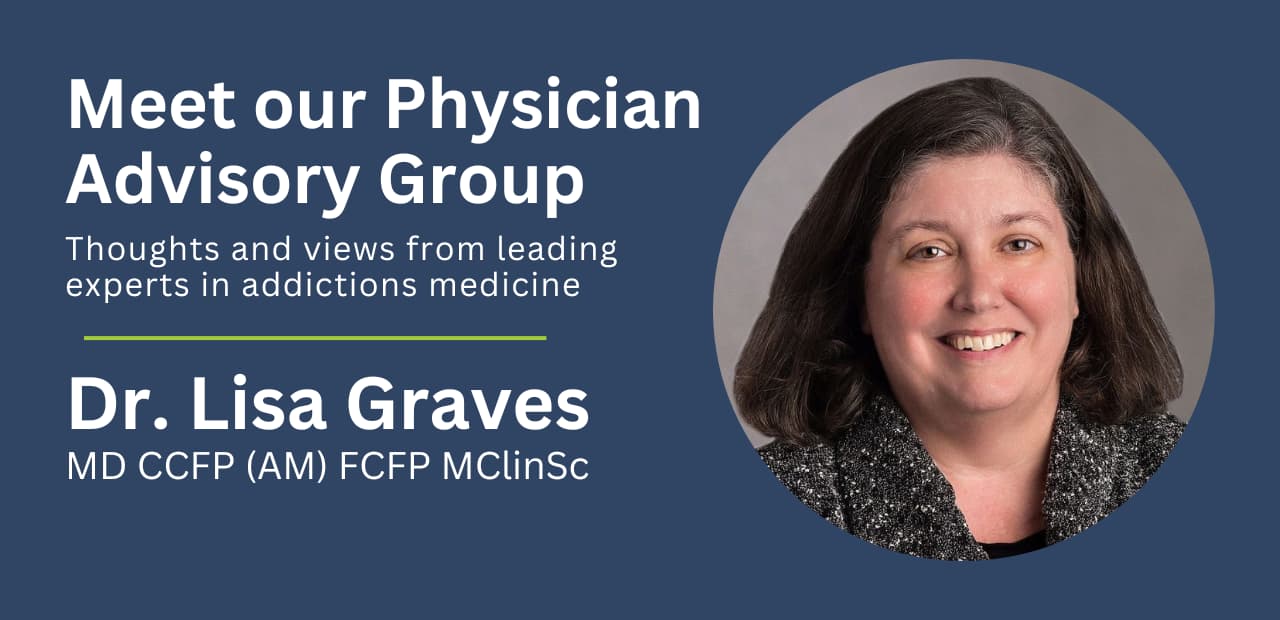PAG Interviews: Dr. Lisa Graves
PAG Interviews: Dr. Lisa Graves

1. What drove you to specialize in addiction medicine? How did you get started in the field?
Although I have a CAC in addictions medicine, I continue to see myself as a family physician who provides care for people living with substance use disorder. This allows me to use skills in family medicine and patient-centred care on a daily basis.
2. What are you most proud of in your career?
I have been involved in providing care for those living with SUD for nearly 27 years. I have always been a medical educator. I am most proud of being able to work students, residents, and practicing colleagues across the professional spectrum to teach around SUD. I am proud of the changes this has brought to the patients we serve.
3. What does being on CATC’s Physician Advisory Group mean to you?
This is an opportunity to stay grounded in the challenges of delivering care in multiple community settings including communities that are rural and remote.
4. What advice would you give to someone who is looking to start treatment, or who is worried about a loved one who might be struggling with substance use?
Becoming informed is the most important part of the journey. Looking to start treatment or supporting another into treatment can only happen if you get needed information. Treatment may or may not be the choice, but knowledge helps.
5. What makes CATC different, in terms of approach to care and patient outcomes?
Commitment to being accessible. I am very proud that CATC is open to patient care on holidays and weekends. We are able to address the needs of patients with work and other commitments during weekdays and still provide treatment. This makes us unique.
6. What is your philosophy and approach in helping people recover from substance use disorder and addiction?
In all of my patient care I practice using the patient-centred clinical method. This approach views each person as unique and applies a holistic context based care.
7. What do you think is the biggest misconception about addiction?
Substance use disorder is a chronic disease like any other…high blood pressure, diabetes, arthritis…once we start to view SUD in this framework it changes the landscape of treatment.
8. In your view, what is the future of addiction medicine in Canada? How is CATC helping shape that future?
Addiction medicine has moved from a treatment on the sidelines to a core competency for many Canadian learners. This broad-based educational change will further integrate treatment of SUD into “usual” care.
About the Physician Advisory Group
The Physician Advisory Group is an engaged group of highly-specialized physicians with deep expertise in addiction medicine and healthcare policy. Under the leadership of CATC’s Chief Medical Director, they oversee and guide our clinical practice related to Opioid Agonist Treatment across Canada, ensuring we remain on the leading edge of evidence-based substance use disorder treatment and intervention. This is one of the ways we uphold our commitment to our patients to provide best-in-class comprehensive care that meets their needs in response to the continuously evolving landscape of addiction in our communities.